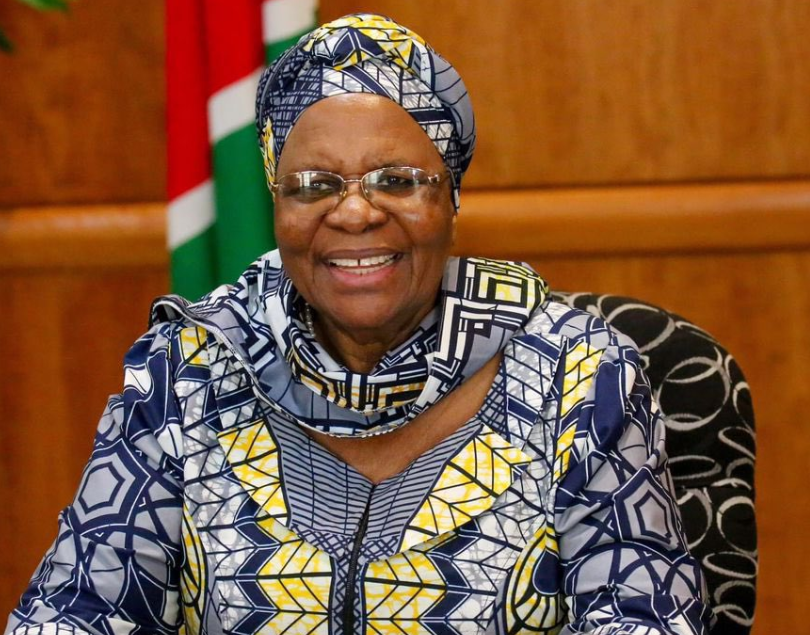Johannesburg – Namibia’s first woman president Netumbo Nandi-Ndaitwah on Thursday said her victory in a disputed vote last week had broken a “glass ceiling”.
The vice-president secured just past 57 percent of the vote, well ahead of the candidate for the main opposition Independent Patriots for Change (IPC) on 25.5 percent, the election authority announced on Tuesday.
Yet the IPC has said it did not recognise the vote, pointing to a “multitude of irregularities”.
“As a woman, I’m the first to admit that my election to the highest office in the land is definitely one that is breaking the glass ceiling for a Namibian woman,” she told reporters at her first briefing since her victory’s announcement.
Nandi-Ndaitwah, 72, became the first woman to rule the mineral-rich nation, governed by her South West Africa People’s Organisation (SWAPO) party since independence from apartheid South Africa in 1990.
In her address, Namibia’s new leader praised Liberia’s former head of state Ellen Johnson Sirleaf, who in 2006 became the first woman president on the African continent, for being “the one who really led the way”.
“And for me, it’s just to reaffirm that equal responsibility of women and men in society is a reality,” Nandi-Ndaitwah said.
Nandi-Ndaitwah, a SWAPO stalwart known by her initials NNN, will be among Africa’s few women leaders.
The conservative daughter of an Anglican pastor, she assumed the role of vice president in February this year.
She has taken a strict stance on abortion, which is banned in the country except in exceptional circumstances, and has not championed women’s rights.
Appearing without her traditional “doek” head wrap, Nandi-Ndaitwah on Thursday stressed that her victory gave her and her SWAPO party the “constitutional and moral legitimacy to govern”.
But the November 27 election, which was extended until November 30, was marked by logistical and technical issues, including a shortage of ballot papers that led to long queues. Some voters gave up on the first day of voting after waiting for up to 12 hours.
The opposition outfit IPC said these were a deliberate attempt to frustrate voters and that it would not accept the results.
‘Radical shift’
Nandi-Ndaitwah on Thursday promised drastic change.
“It’s not going to be business as usual. We must have a radical shift in addressing the plight of our people, especially the downtrodden and the vulnerable communities,” said the president-elect, who is due to take oath on March 21, 2025.
Nandi-Ndaitwah, who has been in government in 2000, refused to blame the electoral commission when asked about its management of the vote, saying the authority had brought the process to a conclusion.
The Electoral Commission of Namibia admitted to failures in the organisation of the vote, including a shortage of ballot papers and the overheating of electronic tablets used to register voters.
Of the nearly 1.5 million registered voters in the sparsely populated country, nearly 77 percent had cast ballots in the presidential vote, it said Tuesday.
Yet while the turnout exceeded that of the previous presidential vote, it was also particularly unequal.
In the northern regions of Ohangwena and Omusati, historic SWAPO strongholds where NNN performed best with nearly 80 and 83 percent of the ballot, voter turnout hit 91 and 92 percent, much higher than the rest of the country.
Meanwhile, in the densely-populated Khomas region, which encompasses the capital Windhoek and where many electoral failings were recorded, only 67 percent of registered voters cast their ballots.
Follow African Insider on Facebook, Twitter and Instagram
Source: AFP
Picture: X/@SuluhuSamia
For more African news, visit Africaninsider.com


